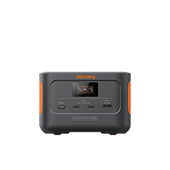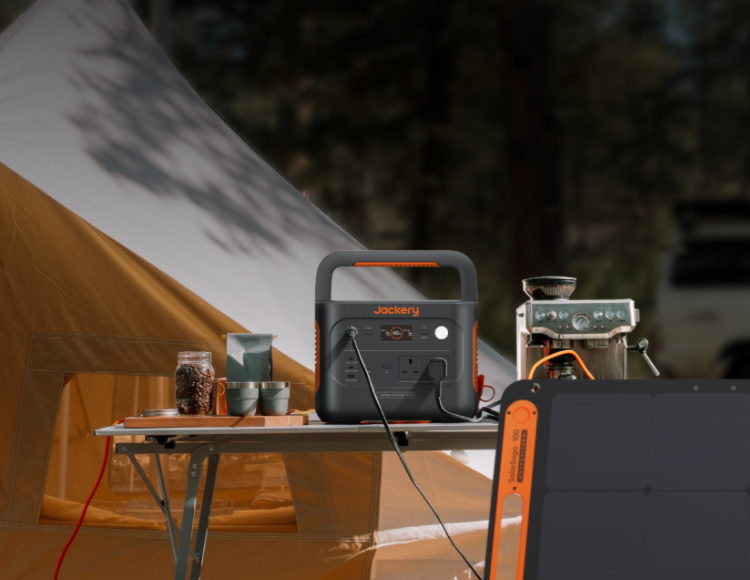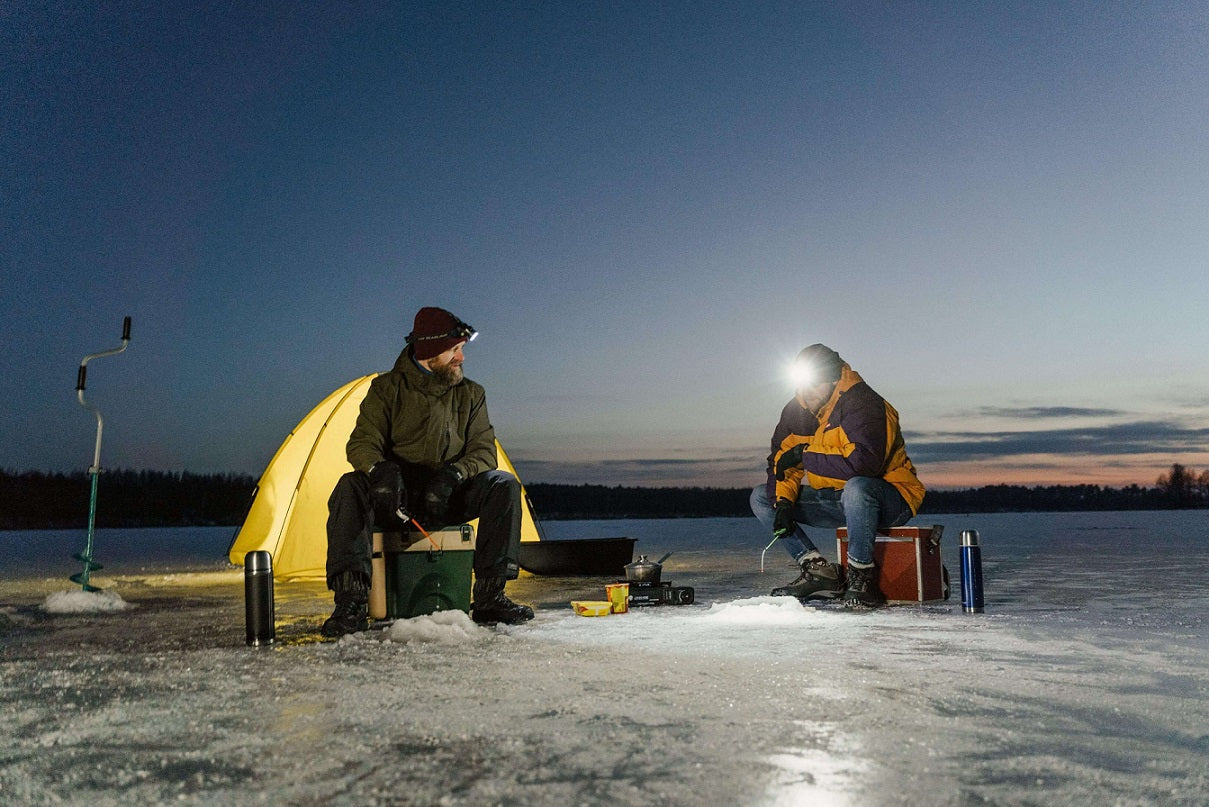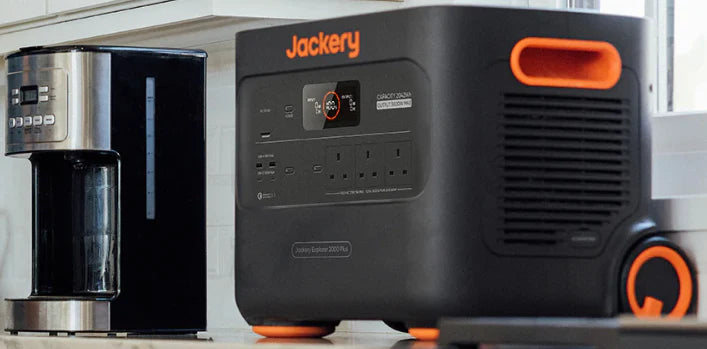Even in the UK's unpredictable weather, spending more time outdoors can replenish vitamin D and improve your mood. Spring water fishing is often associated with crystal clear streams and lively caves, making it a unique fishing experience.
This article introduces the best UK spring water fishing locations, including River Ribble, Llyn Trawsfynydd, and Sulby Reservoir. In addition, springwater fishing enthusiasts can learn about the best time for springwater fishing, the equipment list, the fish that can be harvested, and fishing license regulations.
|
Key Takeaways: |
|
- A legal fishing license is required for fishing in England, Wales and Northern Ireland. - This section introduces ten of the best springwater fishing locations in the UK, including River Ribble, Rutland Water, Blagdon Lake, Llyn Trawsfynydd, and Sulby Reservoir. - The core equipment for springwater fishing includes fishing rods, reels, lines, fish hooks, and baits. - In the UK, you may catch rainbow trout, brown trout, roach, grayling, barbel or dace in spring water fishing. - It is best to experience spring water fishing in the early morning or evening when it is cool in the hot summer. - We highly recommend Jackery Explorer 1000 v2 and 500 portable power stations for powering fishing electronics and devices outdoors. |
Does Spring Water Fishing Require a Fishing License?
In the UK, spring water fishing generally refers to fishing in rivers, lakes or ponds formed by natural springs. Fishing enthusiasts may favour such waters because of their clear water quality and abundant fish resources (such as trout, salmon, etc.).
Is a Fishing License Required?
You need a legal fishing license to fish in most parts of the UK. However, the specific regulations for fishing licenses vary from region to region:
Fishing Licenses in England and Wales
Suppose you want to use a fishing rod and fishing line to fish for salmon, trout, freshwater fish, smelt or eels in areas such as England (except the River Tweed), Wales, and the Border Esk area (including the part of the river in Scotland). In that case, you must have a fishing license for England and Wales. You still need a fishing license even if fishing on private land (such as fishing club waters or private fishing lakes).
Fishing Licenses in Scotland
You only need permission from the landowner or fishing club to fish with a fishing rod and fishing line anywhere in Scotland (except the Border Esk area). You do not need a license. However, after the Border Esk River flows into England, you must buy an English and Welsh fishing license to fish in any section of the Border Esk. This includes the river and its tributaries in Scotland.
Fishing Licenses in Northern Ireland
You cannot go fishing in Northern Ireland even if you have a fishing licence from England, Scotland, or Wales. You must have a fishing licence issued by a Northern Irish authority.
Penalties for Fishing Without a Fishing Licence
Suppose you are caught by an Environment Agency fisheries bailiff or police officer fishing without a fishing licence and are found guilty by a magistrate. In that case, you will be liable to have your fishing gear confiscated or be fined. The maximum fine is £2,500.
The Best Places for Spring Water Fishing in the UK
Spring water fishing is very popular in the UK, especially in clear streams and rivers. Although fishing is permitted in most rivers or streams in the UK, time restrictions, fish restrictions and licences vary. Therefore, please check and familiarise yourself with the specific regulations before heading out fishing.
Here are ten of the best spring water fishing locations in the UK:

River Ribble (Lancashire)
Fishing Type: Salmon, Sea Trout, Brown Trout, Barbel
The River Ribble flows through the Ribble Valley and is an excellent location for salmon, sea trout and brown trout fishing. The lower reaches of the river are famous for barbel. FlyFly fishing is the most popular and effective method for trout in the upper reaches for trout in the upper reaches. You can spin for salmon in the deeper reaches of the river.
Rutland Water (Leicestershire)
Fishing Type: Rainbow Trout, Brown Trout
Rutland Water is one of the largest artificial lakes in Europe and is famous for trout fishing. Its open waters are perfect for boat fishing. You can try fishing Rutland Water with nymphs such as Diawl Bach or buzzers in midsummer.
Chew Valley Lake (Somerset)
Fishing Type: Rainbow Trout, Brown Trout, Pike
Chew Valley Lake is a great place to go fishing and is well known for its excellent trout fishing. When fishing for trout in Chew Valley Lake, use sinking lines and lures like Damsel Fly near the dam wall. For pike, use large dead baits or twitching baits in shallow water. In addition, Chew Valley Lake in winter is the best time to fish for pike.
Grafham Water (Cambridgeshire)
Fishing Type: Rainbow Trout, Brown Trout
Grafham Water is a large reservoir that is regularly stocked with rainbow trout. In addition, the brown trout population here is also relatively abundant. Therefore, Grafham Water is well known for its trout fishing. In the deeper areas of Grafham Water, you can try fishing with small nymphs and buzzers, which are particularly effective.
Blagdon Lake (Somerset)
Fishing Type: Rainbow Trout, Brown Trout
Blagdon Lake is a historic reservoir well known for its excellent trout fishing. If you intend to catch trout here, try to see them in the evening when the water level rises. Using small dry flies or feather flies in the evening gives the best chance of catching rising trout.
Loch Leven (Perth and Kinross)
Fishing Type: Brown Trout
With an area of over 13 square kilometres, Loch Leven is a renowned trout fishery famous for its wild brown trout. Fly fishing is popular in this unique and fast-growing trout habitat. Some of the most popular flies include the Loch Leven spider fly and the claret bumblebee fly.
Lough Erne (County Fermanagh)
Fishing Type: Pike, Perch, Loach, Trout
Lough Erne has several interconnected lakes, so the fishing options are plentiful. The Upper Lough is shallow and ideal for pike (around the weed beds) and perch. The Lower Lough, on the other hand, is deeper and more suitable for trout. Early summer is the best time to fish for trout.
Llyn Brenig (Denbighshire)
Fishing Type: Rainbow Trout, Brown Trout
Although Llyn Brenig is an artificial reservoir, it has become one of Wales' top trout fisheries. As well as regularly stocked rainbow trout, there is a natural population of brown trout. Early summer is the best time to fish and catch something big. Try drift fishing in the deeper waters of Llyn Brenig using lures such as cat whiskers or black buzzers.
Llyn Trawsfynydd (Gwynedd)
Fishing Type: Brown Trout, Rainbow Trout, Pike
Llyn Trawsfynydd is a large Snowdonia lake famous for its wild brown and farmed rainbow trout. In the colder months, pike fishing is also popular. Fly fishing near the dam wall for rainbow trout is good from April to October. In late autumn and winter, dead bait can be used in deeper areas for pike.
Sulby Reservoir
Fishing Type: Rainbow Trout, Brown Trout
Sulby Reservoir is the largest freshwater reservoir on the Isle of Man and is regularly stocked with rainbow trout. In addition, Sulby Reservoir has a large population of wild brown trout. As a result, Sulby Reservoir is well known for its excellent trout fishing experience. Fly fishing at Sulby Reservoir using nymphs and wet flies is very effective, especially in the summer when fish hatches are frequent.

The Best Time for Spring Water Fishing
For fishing enthusiasts, the unique charm of spring water fishing lies in the clear water quality and abundant fish resources. However, to reap a full harvest, it is crucial to grasp fishing timing accurately. In the UK, the best time for spring water fishing is indeed affected by the season and the time of day.
The Best Season for Spring Water Fishing
Summer can be said to be the "golden season" for spring water fishing in the UK. In summer, the spring water temperature rises (usually 10°C-18°C), and the activity of fish increases. For example, rising spring water temperature will stimulate freshwater fish such as carp, bream, and perch to enter the active foraging period, significantly increasing the bite rate. Summer is also the peak hatching period for aquatic insects such as mayflies and stoneflies, and fish are active in predation, which is especially suitable for fly fishing.
In addition, the sufficient sunlight in summer and the vigorous growth of aquatic vegetation provide natural cover for fish and create excellent conditions for anglers to observe fish more easily.
The Best Time of Day for Spring Water Fishing
It is best to experience spring water fishing in the early morning or evening when it is cool in the hot summer.
Early morning, from sunrise to 10 a.m., is one of the best times for spring water fishing. The light is soft now, and the water temperature is low. Fish tend to move in the middle of the water and are very sensitive to bait. The quiet environment makes it easier for anglers to catch the slight movements of fish, especially for fishing with live bait.
The evening, from 2 hours before sunset to dusk, is also the best time of the day for spring water fishing. At this time, the setting sun shines on the water surface at a low angle, forming a natural "backlight effect," which reduces fish's vigilance and makes them more easily attracted to the shaking bait on the water surface. For example, carp and bass often swim to the shore in the evening to find food, suitable for floating fishing or near-shore casting.
Fish that Spring Water Fishing Can Catch
In the UK, you can catch various freshwater fish by fishing in springs or streams and rivers formed by springs. However, the specific fish species seen in spring water fishing depend on the water environment (such as water temperature, flow rate, dissolved oxygen content, etc.). The following are the fish species that may be caught in springwater fishing and their characteristics:

Rainbow Trout
Rainbow trout is a common farmed and sport fish species in the UK, often introduced into clear, highly oxygenated springs or streams. They are very ferocious predators, usually feeding on larvae, small fish, and mayflies. Fewer wild populations, but many fishing spots will stock them regularly. People often use maggots and worms as bait to catch rainbow trout.
Brown Trout
Brown trout is a native fish species in the UK, commonly found in freshwater waters, especially in clear, cool streams and springs. They are one of the targets that spring water fishing enthusiasts are keen on.
Croatfish
Croatfish is also one of the most common fish in British waters. Croatfish are adaptable and can survive in streams or slow-flowing springs but are more commonly found in lakes or rivers. They may be found in small numbers in springs that form deep pools. They hang out near bridges and reed beds, spawning in shallow waters with plenty of vegetation.
Grayling
Graylings are native to the UK and are commonly found in cold-water rivers and streams. They prefer clean, moving water and are one of the most critical species in freshwater fishing, especially in the Severn and Calder rivers. You can usually catch grayling with some of the more traditional baits, such as maggots, worms, and bread.
Barbel
Barbels usually inhabit fast-flowing rivers, especially those with gravel or stony riverbeds. They are a popular target in waterways such as the River Wye in Herefordshire and the River Derwent in North Yorkshire. Barbel can usually be caught with luncheon meat, bait, bouncing bait, water barbel, maggots and paste bait.
Dace
Dace is a small freshwater fish commonly found in rivers and streams. It prefers clear, flowing water and is often caught with other fish species. You can usually catch dace using regular feeding and light fishing methods using only small hooks.
Spring Water Fishing Equipment List
When doing spring water fishing (such as stream or mountain stream fishing) in the UK, it is essential to choose the right equipment. The following is a list of equipment suitable for spring water fishing in the UK, combined with local climate, water characteristics and practical suggestions, divided into core equipment and optional auxiliary equipment for reference by novices:

Core Equipment for Spring Water Fishing
If you plan to go spring water fishing, then you must bring the following core equipment:
Fishing Rod: You can consider a flying rod or a spinning rod.
Reel: If it is a fly rod, choose a fly reel that matches the weight of the fishing rod. The spinning rod needs to be paired with a light spinning reel.
Fishing Line: If it is a fly rod, it can be paired with a floating line. Alternatively, you can use a 4-8 pound nylon or braided line with a spinning rod.
Fish Hook: High carbon steel or stainless steel fish hooks can prevent rust.
Bait: Flies include dry flies, wet flies, nymphs, etc. Spinning baits include small spinners, spoons or soft baits.
Bait Box: Sealed and waterproof bait boxes can prevent bait from getting wet or contaminated.
Scissors or Pliers: They can cut lines and quickly handle bait.
Tweezers or Hook Removers: They can help you remove fish hooks safely.
Fish Guard: Foldable net bag-style fish guards can reduce damage to fish and prevent live fish from lacking oxygen.
Fish Basket or Bucket: You can temporarily store fish in fish baskets or buckets if necessary.
Anti-Slip Shoes: Shoes with anti-slip soles can ensure your safety on slippery rocks.
Quick-Drying Pants: Lightweight and breathable quick-drying pants replace traditional wading pants with a higher risk of falling.
Optional Auxiliary Equipment for Spring Water Fishing
If you have the following auxiliary and core equipment, your springwater fishing experience can significantly improve.
Electronic Float: A luminary or induction float can adapt to the British spring water environment, with a significant temperature difference between morning and evening.
Sinking Weight: It can adjust the sinking depth of the bait.
Polarised Filter: Polarised filter helps you see the fish in the water.
Waterproof Jacket: The weather in the UK is changeable, so a waterproof jacket is a must.
Backpack: A backpack with enough capacity can carry all the equipment.
First Aid Kit: The simple first aid supplies in the first aid kit can deal with some minor injuries.
Fishing Chair: A lightweight and foldable fishing chair can relieve the fatigue caused by standing for a long time.
Parasol: When fishing, a parasol can consider sun and rain protection.
Portable Power Station: A high-quality portable power station (such as Jackery Explorer 1000 v2 / 500) can support low-temperature startup and provide battery life for electronic devices when spring water fishing.
Jackery Portable Power Stations for Spring Water Fishing
A portable power station can significantly enhance spring water fishing by providing reliable power for various devices and needs, especially in remote or off-grid locations. It can charge electronics, power fishing equipment like fish finders or navigation systems, and even run lights for night fishing or setting up a campsite.
Engineered for exploration. Up to 30% reduced weight and dimensions relative to alternatives. It has an ergonomic handle design and is convenient to transport to any desired location. Jackery offers portable power solutions ranging from 240W to 2000W, capable of powering up to 99% of equipment, including refrigerators, electric grills, CPAP machines, sump pumps, etc.
Utilising the power station weekly for 20 years while camping will preserve up to 80% of the battery's maximum capacity. It is based on a single complete charge every week. The ultra-long battery can remain on standby for up to 4 years when completely charged. It is ideal for camping, recreational vehicle living, home emergencies, and professional outdoor applications.
Jackery Explorer 1000 v2
The Jackery Explorer 1000 v2 Portable Power Station is a battery-powered station with a significant capacity of 1070Wh. It uses the pure sine wave inverter to produce an AC waveform that closely mimics the smooth, consistent power supplied by the utility grid. Compared to comparable items, the power station is recognised as a more compact, lightweight, and economical charging solution. It features a collapsable handle and an ergonomic design, facilitating more straightforward transport to outdoor fishing settings.

- Portable Power Supply: The Explorer 1000 v2 Portable Power Station has an excellent 1500W output and 1070Wh capacity, 50% higher than the Explorer 1000. It can power fishing electronics and devices, such as portable coolers, fish finders, GPS devices, etc. Equipped with USB-A/C connections and dual PD charging up to 100W, it can simultaneously charge several devices (phone, laptop), rendering it the ideal companion for all your power requirements.
- Fast Charging: The app's Emergency Charge Mode allows the Explorer 1000 v2 Portable Power Station to fully charge in less than an hour, offering vital power backup when the battery runs low during the fishing trip. Moreover, charging from 0% to 100% within two hours via an AC wall outlet prolongs battery longevity.
- Quiet Operation: Experience serenity with its nearly silent operation, maintaining noise levels below 22dB while energising your devices. This power station guarantees uninterrupted enjoyment during spring water fishing so that you can power your electric fish finders and other electronics without noise.
|
Fishing Electronics & Devices |
Running Time |
|
Portable Cooler (60W) |
15H |
|
Ice Maker (500W) |
1.8H |
|
Drone (90W) |
25 Times |
|
Electric Fish Finder (30W) |
19.5H |
|
Flashlight (5W) |
43.9H |
(*The working hours are only for reference; the actual working hours depend on your usage.)
Jackery Explorer 500
The Jackery Explorer 500 is a portable power station with a capacity of 518Wh, utilising lithium technology. It is among the lightest and most portable rechargeable lithium battery generators available, ideal for spring water fishing.

- Sufficient Power: The Jackery Explorer 500 features a 518-watt-hour (24Ah, 21.6V) lithium battery pack and a pure sine wave inverter. It includes one AC outlet (110V 500W 1000W peak), three USB-A connections, two DC connectors, and one carport to operate low- to high-power items, such as a portable cooler, fan, fish finder, etc.
- Various Recharging Methods: The Explorer 500 features a premium integrated MPPT charge controller. This facilitates rapid and effortless solar recharging when combined with the Jackery SolarSaga 100W solar panel (available separately). The Explorer 500 may be recharged using a home socket, automobile outlet, or power generator.
- Durability & Reliability: The sophisticated Battery Management System (BMS) and pure sine wave inverter provide consistent power to the devices. The advanced temperature sensors guarantee the power station's suitability for adverse weather conditions.
- Portability: The Jackery Explorer 500 portable power station is approximately the dimensions of a basketball and features a robust grip. Its lightweight and small form makes it ideal for fishing trips.
|
Fishing Electronics & Devices |
Running Time |
|
Portable Cooler (60W) |
6.1H |
|
Ice Maker (500W) |
0.8H |
|
Drone (90W) |
4.2H |
|
Electric Fish Finder (30W) |
10.6H |
|
Flashlight (5W) |
28.3H |
(*The working hours are only for reference; the actual working hours depend on your usage.)
FAQs about Spring Water Fishing
The following are the frequently asked questions about spring water fishing in the UK:
1. What is spring water fishing?
Spring water fishing is fishing in clear streams, lakes or ponds.
2. Why should you try spring water fishing?
Spring water fishing is a unique and challenging way of fishing. It allows anglers to enjoy the tranquillity and beauty of nature. In addition, the sound of flowing spring water, surrounding vegetation, and fresh air can effectively relieve stress. Fish in spring water fishing are more sensitive to lures or fishing gear, requiring precise casting and concealment, which can quickly improve the angler's observation and skill adaptability.
3. Is the more equipment there, the better when fishing in spring water?
When fishing in spring water, the more equipment, the better. On the contrary, a reasonable and lightweight combination is more efficient. Most importantly, the terrain around springs is usually narrow, and too much equipment will hinder operation and even damage the natural environment. If you plan spring water fishing, you can only carry the core equipment, including fishing rods, reels, lines, fish hooks, bait, etc.
4. In England, does everyone need a fishing license to fish?
No. In England, anyone aged 13 and over needs a fishing licence for freshwater fish, salmon, trout, smelt and eels, but young people aged 13 to 16 can get a free junior fishing licence.
Final Thoughts
In summary, spring water fishing has a unique charm, whether for its beautiful natural environment or excellent fishing experience. Under the condition of following the regulations and travelling light, people can truly experience the joy of spring water fishing outdoors. If you are looking for an enjoyable activity that allows you to be in nature, this spring water fishing article will provide you with the best guide.































































